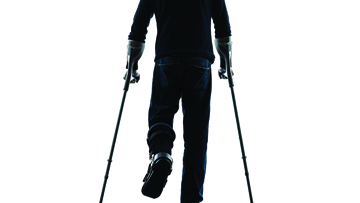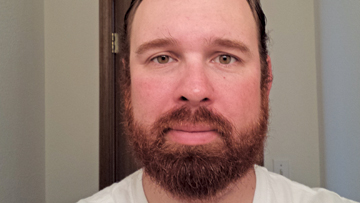You have free articles remaining this month.
Subscribe to the RP Witness for full access to new articles and the complete archives.
You may have heard of John Piper’s book Don’t Waste Your Life. Less known is his short booklet Don’t Waste Your Cancer, written on the eve of his prostate cancer surgery. Then there is Marvin Olasky’s article, “Don’t Waste Your Bypass,” published years ago in World magazine.
These are recommended reading. To summarize them under a single heading one could say, “Don’t waste this moment that God has given you to glorify and trust Him in your weakness.” We live in a world of brokenness, pain, suffering and death. Some of us have encountered more of this than others. For most of us, intense suffering and pain are occasional visitors in the long, beautiful day of God’s presence. Yet others live with painful burdens for years, as I’ve seen when they kneel close beside me as dear friends, during the agony of a night that will not end. For some, there is but a flicker of the slightest light, and they continually cry, “My God, My God, why have You forsaken me?”
When I was young and healthy, I hardly thought of such things. Youthful optimism allowed me to sail through challenges with hardly a blink. But suffering has a way of stripping the fluff from our lives and boiling it down to what really matters. It has a way of reminding us that we are fragile and mortal. It subtly reminds us that there will come an unknown day when the bell will toll for us.
I have had a few occasions of suffering in my life. I was injured on a battlefield in Iraq in 2009, the pain from which I still suffer daily. I watched my beloved father wither from Parkinson’s and finally pass away of cardiac failure. Most recently, I broke my fifth metatarsal (that little bone on the outside of your foot) in a game of volleyball with friends.
These moments can make or break us. Some succumb. Some take the stoic route and simply endure. But the Christian who has learned to keep God’s glory in mind will say with Psalm 119:71, “It is good for me that I was afflicted, that I might learn your statutes.”
I have not found that affliction is easy, nor that it is easy to keep my eyes fixed on Christ in its midst. My frustrating experience with my broken foot proves this. Amidst the pressures of a recent move from Texas to Kansas, and scrambling to find a job after learning the job I thought I had was given to another, I was unprepared to take time off to nurse an injury. My first reaction was one of irritation, slight panic, and a hurt ego as I realized my best laid plans were going awry. It took the unyielding and loving confrontation by a brother for me to remember Psalm 127:2 in The Book of Psalms for Worship:
How vain to work long days, late hours—to eat with toil and cares; For even so, His loved ones sleep; This gift with them He shares.
What is this experience teaching me?
First, my hope must be in God alone. When I’m without suffering, I tend to rely on my own strength to plow through the day. Right now each footstep is a painful reminder that every motion is a gift from a loving and gracious God. I must consciously hope in God to bring me healing in His time and to sustain me throughout each day, as He does even when I’m not mindfully remembering Him.
Second, my provision comes from God alone. As the major family breadwinner, it is a blow to my ego to realize that for the next 6 to 12 weeks I’m stuck with a cast and crutches and can’t work. Like the Israelites on every Sabbath in the wilderness and during every seventh year in the Promised Land, I must rely on God’s provision to meet my family’s needs.
Third, my rest must be in God alone. We must remember that God has commanded one day in seven in which we are to stop doing our own things and do His things. When we cease our own work, we are saying that we are trusting in Christ to work for us. By focusing on God’s work, we are saying that He is more precious to us than our own well-being. God is forcing me on a sabbatical, a period of time when I must stop being concerned with job performance and concern myself exclusively with the business of His kingdom.
John Piper ends his booklet on cancer by saying,
Christians are never anywhere by divine accident. There are reasons for why we wind up where we do. Consider what Jesus said about painful, unplanned circumstances: “They will lay their hands on you and persecute you, delivering you up to the synagogues and prisons, and you will be brought before kings and governors for my name’s sake. This will be your opportunity to bear witness” (Luke 21:12-13). So it is with cancer. This will be an opportunity to bear witness. Christ is infinitely worthy. Here is a golden opportunity to show that he is worth more than life. Don’t waste it.
So it is with my fifth metatarsal.
Author David Webber is a 12-year Army veteran who served four deployments in Iraq and Kuwait and was injured by a vehicle rollover during his third tour. After receiving his discharge in 2012, he worked his way through school and moved to Topeka, Kan., where he lives with his wife and four children.

